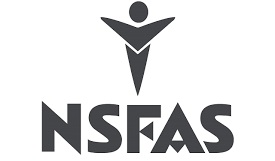Paying Back the Loan

NSFAS logo
The student loans are income-contingent, which means once you are employed repayment commences. NSFAS will send you statements to help keep track of how much you owe.
How Much Do You Pay Back?
- The repayments are worked out at a rate that will not place a great burden on you.
- Therefore, repayments are based on the salary that you earn.
- And repayments only start once your salary is R30 000 or more per year (ie R2 500 per month). At this level your repayment is 3% of your annual salary increasing to a maximun of 8% when your salary reaches R59 300 or more per year.
When is a loan converted into a bursary?
- Different loans have different rules about conversion. Up to a maximum of 40% of a general loan is converted into a bursary when a student passes all of the courses they were registered for in that year. Students who apply at their institution's Financial Aid Office to be on the NSFAS Final-Year Programme have their final-year loans converted into a 100% bursary if they pass all of their final-year courses and qualify to graduate. If they do not pass all subjects, the conversion applicable to general loans is applied.
What happens when I do not complete my studies?
Students who drop out are still required to repay their loan when they start earning R30 000 or more a year.
Contents:
The content on this page was last updated on 24 October 2019


